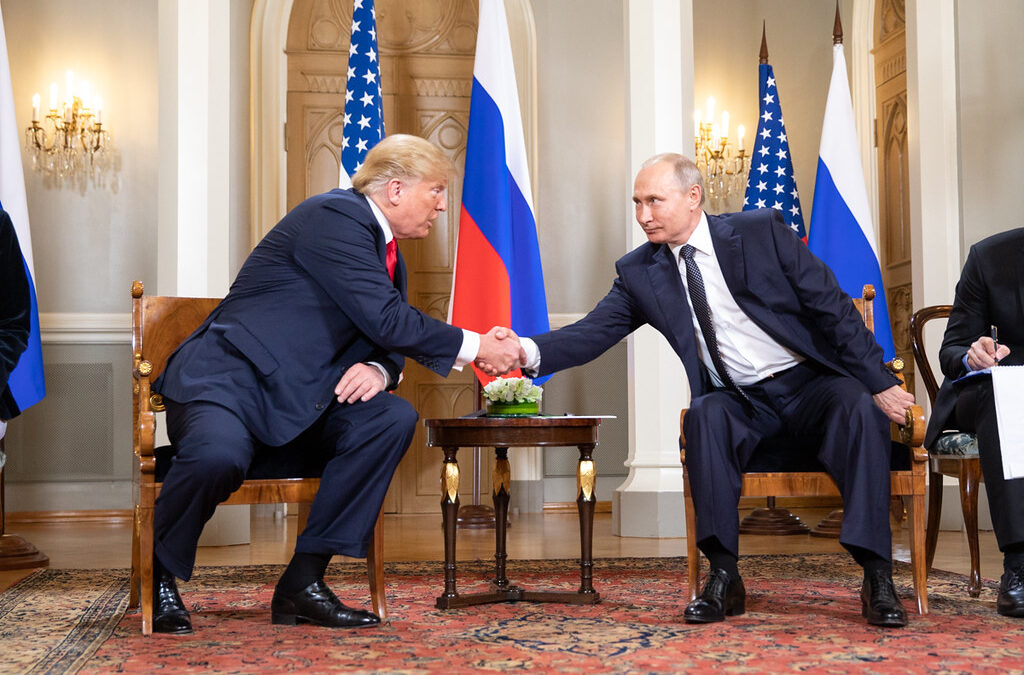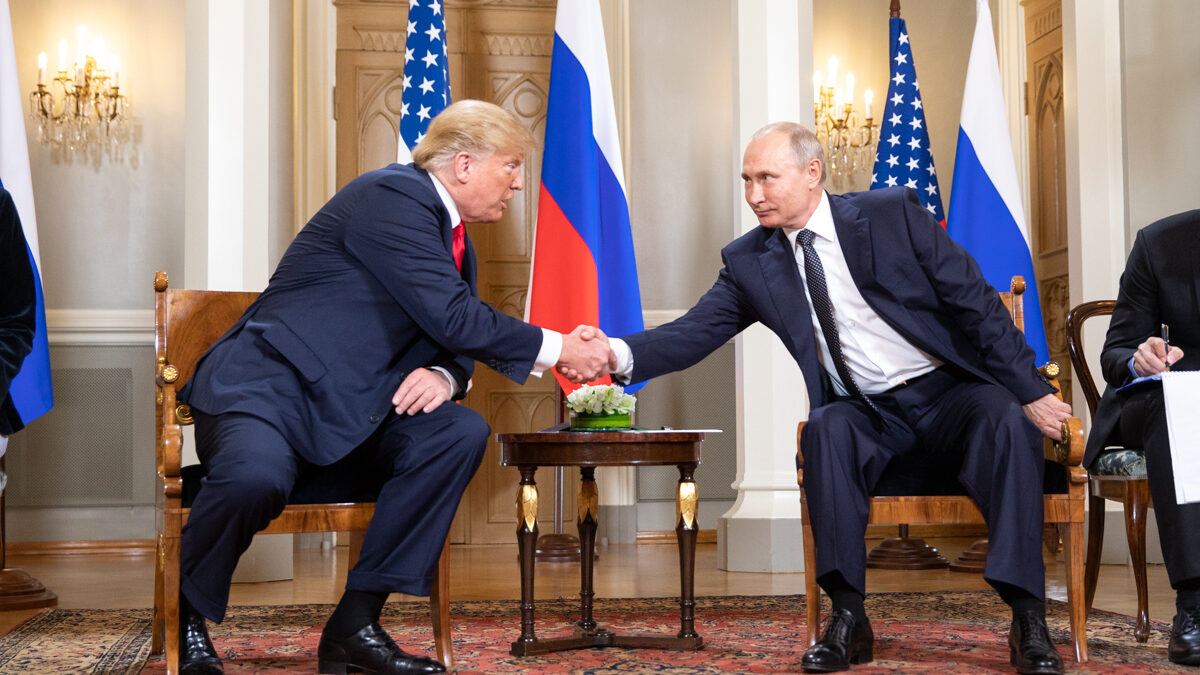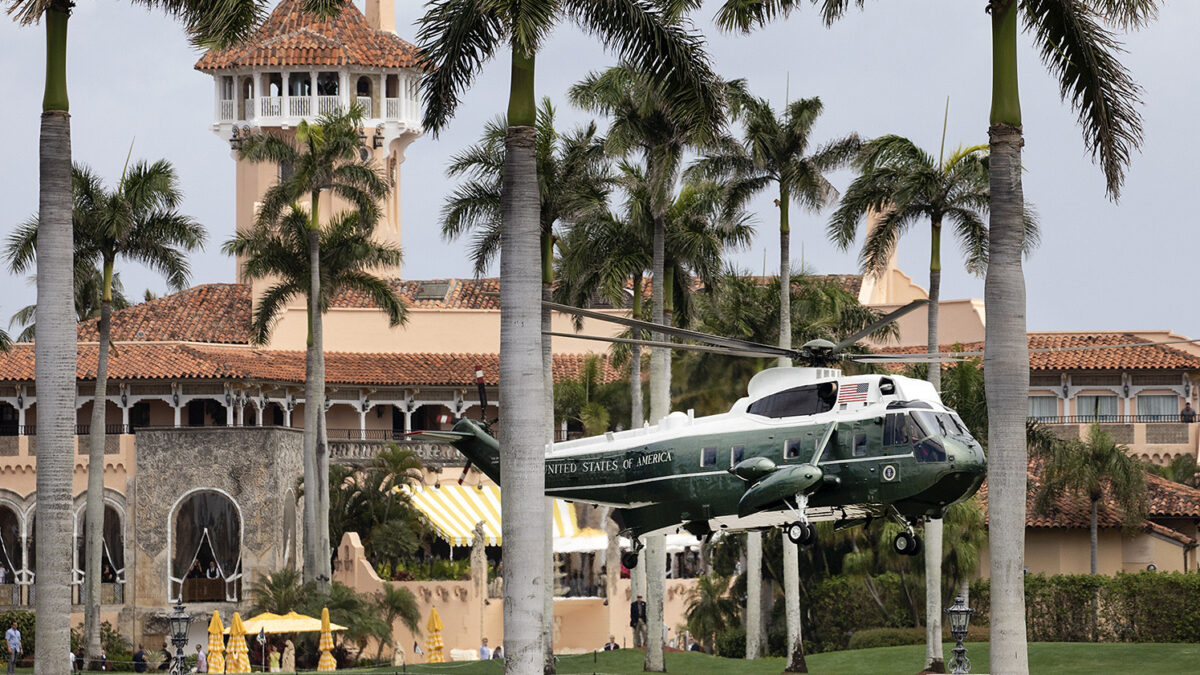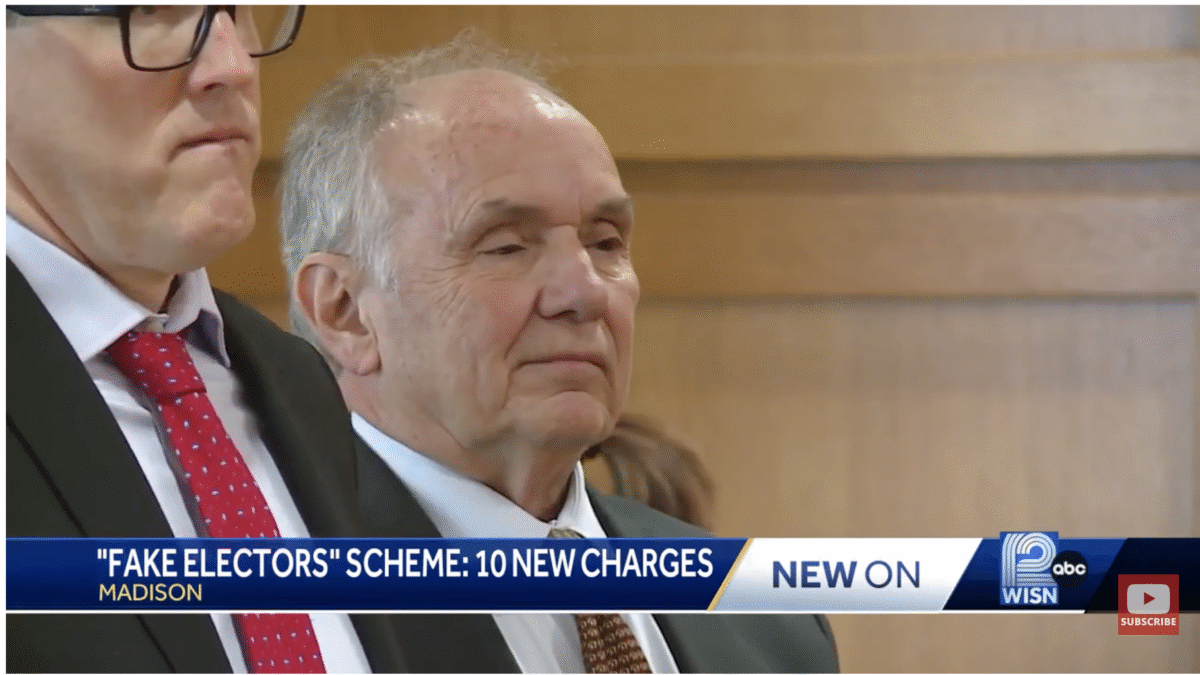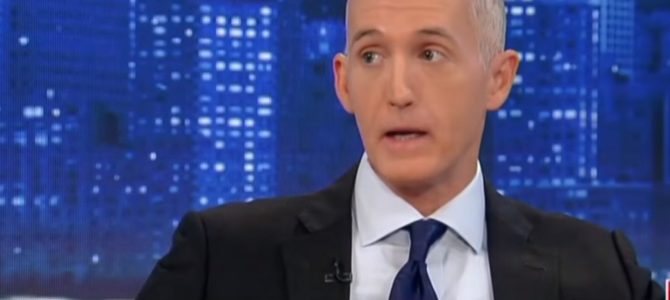
Rep. Trey Gowdy (R-S.C.) recently suggested the FBI did nothing wrong when it used at least one government informant to secretly collect information on Donald Trump’s presidential campaign. Public reports indicate, however, that Gowdy never even reviewed the relevant documents on the matter subpoenaed by Congress. In fact, a spokeswoman for Gowdy told The Federalist that the congressman doesn’t even know what documents and records were subpoenaed by the House Permanent Select Committee on Intelligence (HPSCI).
The briefing Gowdy and other lawmakers attended was scheduled at the behest of the White House after the Department of Justice (DOJ) obstructed the subpoena. Deputy Attorney General Rod Rosenstein likened HPSCI’s constitutionally obligated congressional oversight of DOJ to “extortion.”
Although Gowdy intimated that the information he received in a briefing last week made clear the FBI did nothing wrong, numerous reports from multiple news outlets indicated that the lawmakers DOJ invited to the briefing were not given access to all of the records HPSCI subpoenaed. Other comments Gowdy made during recent television interviews raise questions about how firm a grasp he has on the investigation and concerns the investigation has raised.
The May 24 briefing was held after tensions flared over the Justice Department’s refusal to comply with the congressional subpoena. DOJ initially claimed President Trump backed its obstruction efforts, a charge refuted by the White House and President Trump himself.
According to government sources who leaked information to The New York Times and Washington Post, the subpoena dealt with an individual who was secretly gathering information on the Trump campaign on behalf of the federal government. Media outlets had reported government officials’ claims they couldn’t comply with the subpoena because revealing any details about the individual would cause loss of life and grave threats to national security. The same media outlets then used leaks from government officials to report the individual’s personally identifying information — up to and including his name.
Along with Gowdy, HPSCI Chairman Rep. Devin Nunes (R-Calif.) received a classified briefing on the subpoenaed information. Seven other members of Congress did as well. However, multiple press reports indicate the classified briefings reportedly did not satisfy the subpoena.
“Sources tell me Gowdy and Nunes did not receive the documents they requested during the noon meeting at DOJ, despite pleas for openness from [White House chief of staff John] Kelly and [Trump attorney Emmett] Flood,” CNN reporter Sarah Westwood wrote.
Sources tell me Gowdy and Nunes did not receive the documents they requested during the noon meeting at DOJ, despite the pleas for openness from Kelly and Flood at the start of the briefing
— Sarah Westwood (@sarahcwestwood) May 24, 2018
CBS News reporter Olivia Gazis echoed CNN’s reporting.
“Sounds like documents were not presented by DOJ/FBI at today’s Gang of 8 briefing,” she wrote, “which may mean — after all that — it ultimately proves to be unsatisfactory to those who have been pushing for their provision.”
Rep. Mark Meadows (R-N.C.) reportedly said the same thing this weekend on “Face The Nation” on CBS.
.@RepMarkMeadows on DOJ briefing congressional leaders this week: No documents were shown. We are hopeful this will happen in coming days as long as we protect sources and methods.
— Face The Nation (@FaceTheNation) May 27, 2018
When asked by The Federalist whether Gowdy had seen all the documents Congress requested, a spokeswoman for Gowdy repeatedly declined to say what, if any, subpoenaed records Gowdy had reviewed during the roughly hour-long briefing.
Activists and journalists were thrilled with Gowdy’s comments exonerating the FBI, claiming they “debunked” any concerns that people have about FBI behavior. CNN’s Manu Raju claimed, without providing evidence, that Gowdy had “seen the intel.”
CNN’s Marshall Cohen repeatedly claimed Gowdy’s comments were a “debunking” of the claims that the FBI used at least one informant to surreptitiously collect and report information against the Trump campaign and presidential transition. CNN’s Jake Tapper tweeted, “Gowdy refutes Trump, Nunes, Fox ‘spy’ conspiracy.” ABC News similarly alleged that Gowdy was “disputing Pres. Trump’s unsubstantiated claim the Obama administration used spy to infiltrate his campaign.”
The claims that Gowdy had somehow “refuted” allegations that the FBI used at least one informant to spy on the Trump operation are in direct conflict with confirmed reporting from The New York Times and Washington Post that the FBI did, in fact, use at least one individual to secretly collect information against the Trump campaign for use in the bureau’s anti-Trump investigative efforts. Gowdy himself suggests confirmation that such a government agent was used to secretly collect information on the Trump campaign.
The actual dispute is not whether the FBI used at least one person to spy — or secretly collect information — on people in Trump’s orbit, but whether this is something routinely done against Republican candidates and should be accepted uncritically, or whether it should be fully investigated by the media, the public, government watchdogs, and elected lawmakers obligated by the Constitution to conduct oversight on the agencies to which they appropriate taxpayer funding.
Gowdy’s curious exoneration of the FBI caught many by surprise given his work on the previous HPSCI report that found widespread abuse of surveillance procedures targeting the Trump campaign.
“I am even more convinced that the FBI did exactly what my fellow citizens would want them to do when they got the information they got,” Gowdy said in an interview with Fox News Channel’s Martha MacCallum on Tuesday night.
The next morning on CBS News, co-host John Dickerson asked Gowdy, “So you looked at this and you said what the FBI was doing was kosher, why does the president keep saying what he’s saying when he knows better?”
“I don’t know,” Gowdy responded.
During the interview, however, Gowdy seemed confused or mistaken about simple facts related to the investigation.
Criminal Versus Counter-Intelligence Investigations
For example, after suggesting that the word “spy” was not an appropriate characterization of the FBI’s use of a source who secretly tried to establish a relationship with Trump campaign affiliates in order to report back to the government, Gowdy said he’d never heard the term “spy” during his 20 years of criminal investigations. Note this exchange with co-host Norah O’Donnell:
O’DONNELL: Was there a spy?
GOWDY: That is not a term I’ve ever used in the criminal justice system. Undercover, informant, confidential informant, those are all words I’m familiar with. I’ve never heard the term spy used.
O’DONNELL: So when president says ‘spygate,’ there was no spy, and ‘inserted into the campaign’ — have you seen any evidence of that?
GOWDY: I have not. That’s an espionage term, that’s not a law enforcement term.
Neither the hosts, nor Gowdy, seem to be aware that the FBI’s activities during and after the Trump campaign were part of a counterintelligence probe, not a criminal investigation.
This counterintelligence investigation was formally opened in July 2016, although work on the matter likely began before the investigation was formally launched. The counterintelligence investigation was first reported by The New York Times on October 31, 2016. It was confirmed by then-FBI director James Comey under oath on March 20, 2017, and again on May 3. The New York Times wrote up that briefing with the headline, “F.B.I. Is Investigating Trump’s Russia Ties, Comey Confirms“:
The F.B.I. director, James B. Comey, took the extraordinary step on Monday of announcing that the agency is investigating whether members of President Trump’s campaign colluded with Russia to influence the 2016 election….
Counterintelligence investigations are among the F.B.I.’s most difficult and time-consuming cases, meaning an investigation could hang over the Trump administration for years even though such inquiries rarely lead to criminal charges.
Whether or not you call informants on criminal investigations spies, there is no doubt that you refer to secret government operatives in counterintelligence investigations as spies. Regardless, arguments over whether use of the word “informant” is for some reason preferable to the word “spy” are entirely semantic and don’t speak to whether government agents sending someone undercover to extract information from the Trump campaign was an abuse of power.
Gowdy, who has repeatedly praised Special Counsel Robert Mueller and said he should be allowed to complete his criminal and counterintelligence investigations unimpeded, also admitted he didn’t know the scope of the Mueller probe.
“I’m not sure what the scope of the Mueller probe is,” Gowdy said during his Fox News interview with MacCallum.
Sen. Charles Grassley (R-Iowa), who serves as the chairman of the Senate Judiciary Committee, recently sent a scathing letter to the Justice Department with questions about the scope of the Mueller probe. A federal judge also excoriated prosecutors working for Mueller for attempting to withhold from the court records pertaining to the scope of Mueller’s investigation.
During the CBS News interview, co-host Gayle King asked Gowdy if he had received any blowback from GOP lawmakers for his comments about the FBI’s behavior regarding the informant. Gowdy responded oddly, invoking Sens. Marco Rubio (R-Fla.) and Tom Cotton (R-Ark.), neither of whom were invited to last week’s DOJ briefing.
“The folks who have seen the information I think have the same perspective I have,” Gowdy said, referring to Rubio and Cotton. “Those who have not seen the information, I don’t know what informs their perspective.”
Just as with Gowdy, there is no evidence either Rubio or Cotton has seen all the records HPSCI subpoenaed or even the subpoena HPSCI issued.


